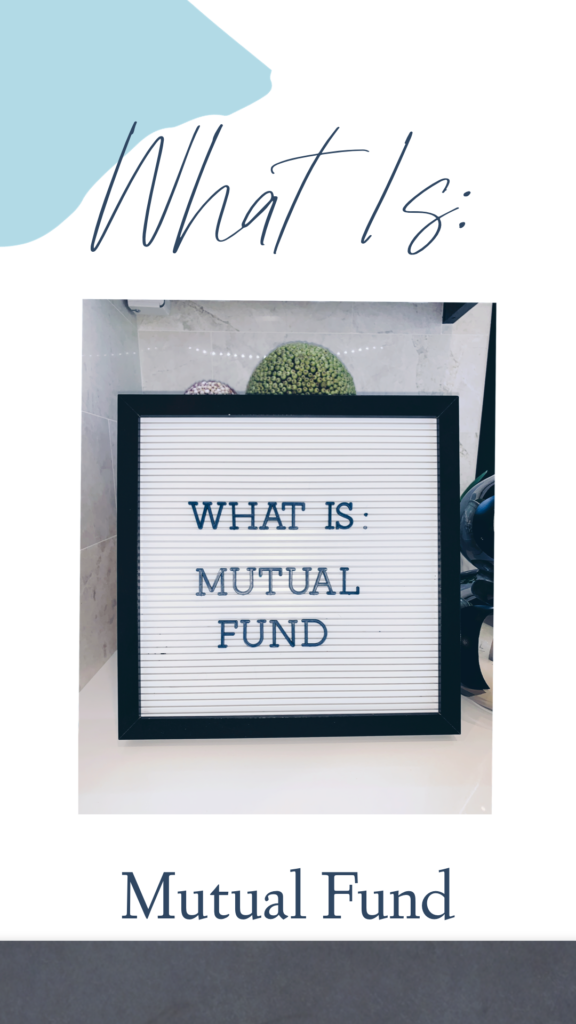
Investing. That seems like such a big word. When I think about it, the first thing that comes to mind are images of the crowded and loud stock exchange floor, where people are screaming and fighting to make trades. Way to intimidating. And I’m sure you probably have a similar view.
For the general public, investing doesn’t have to be this chaotic. So, I want to breakdown some investing tools that you can look into to start investing. Because saving is fun, but having your money work and grow is ideal!
First up, Mutual Funds!
So, What is a Mutual Fund?
In the most simple terms, Mutual Funds are pools of money that you can contribute to that someone invests in a variety of things for you. These people are professional managers who do this for a job, and will create a portfolio of different investments.
This type of investment is great for passive investors, since you are able to put money in and you don’t have to research or take the steps to constantly buy and sell. I personally love handing off this specialty to someone who knows more than me, since as stated above, the idea of trading overwhelms me.
Passive vs Active
Passive funds are those that don’t have a lot of changes happening in them regularly. See blow for some examples.
Active managed funds are higher risk, but generally have higher returns. This is because there is a manager who is actively trying to outperform the market.
As a risk adverse person, I like passive funds since in the long term they are shown to perform better, but to each their own!
There are two popular types of mutual funds for passive investing
Index Funds
These are the lowest risk funds, since they follow the market. The fund invests in a variety of stocks in an index (S&P 500, Nasdaq, etc.) so the risk and returns are similar to those of the market.
Exchange Traded funds
These funds are made up of a variety of different investments, but they can also be traded like individual stocks. These funds generally have a lower fee than traditional mutual funds.
Pros and Cons
Pros:
- Its is simple! Once you find a fund you want to invest in, you don’t have to do much else. That’s what the fund manager is for!
- There is a professional managing your money. There is someone whose job it is to look at the market and make adjustments to anything based on the goals of the fund.
- Affordable! Many times, you can buy into these at a lower price point compared to some other investments. Anyone can buy these given their prices, so love that!
- Easy Access to your money. You can take your money out of these easier than some other investments, like a home, which is great. (there may be penalties for this, so make sure to check your specific investment).
- Diversification. This just means you can have investments in a bunch of different types of things. So, for example, if you invested your money in one company and they go under, your money is gone. But, with Mutual Funds, since the money is spread over lots of different companies, if one fails, it doesn’t have as big of an impact on the overall balance. I like not losing my money all in one fell swoop.
Cons:
- Fees. The biggest benefit of mutual funds leads to one of the biggest drawbacks, fees. The fact that someone is managing the fund for you means that you will have some fees in order to compensate them for their work. Makes sense, but fees still suck.
*It is important to always look into fees before investing in any fund so you don’t get blindsided by large fees in the future.
- No Control. Investing in a mutual fund means that you can’t control the individual investments of that fund. If you are someone who loves to research stocks and financial investments, this may not be the tool for you.
Want to learn more?
For a great article that covers everything mutual funds in detail, click here.
Want to invest in a mutual fund, here is a how to that will show you step by step how to do it.
Now you know the basics of what a mutual fund is! Well at least high level. This is only one of many financial tools out there, so my biggest piece of advice is to do your research, ask trusted resources, and even reach out to a financial advisor if you want even more assistance.
What else in finance do you want me to cover next?



